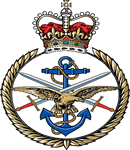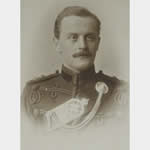Commemorated: | |||
| 1. Memorial: | Basra Memorial | Panel 51 Basra | |
| 2. Book: | The (1921) Masonic Roll of Honour 1914-1918 | Pg.131 | |
| 3. Memorial: | The (1940) Scroll - WW1 Roll of Honour | 47B GQS | |
Awards & Titles: | |||
Family :
Son of the Rev. H. Parsons; husband of Gladys H. Parsons, of Sheridan, Denmark Rd., Guildford.Service Life:
Campaigns:
- The First World War 1914-1918, World-wide.
| Unit / Ship / Est.: 2/9th Gurkha Rifles |
| Action : Mesopotamia |
At the outbreak of war the British, together with Indian troops, resolved to protect oil supply in the region by occupying the area around Basra at Abadan. This evolved into a series of campaigns towards Baghdad against the Turkish forces as Mesopotamia (modern Iraq) was part of the Ottoman Empire. Meetings in late 1914 and into 1915 led the Viceroy and Indian government at Simla to reconsider the limited involvement of troops and they decided to order further advances with a view to securing the Shatt-al-Hai, a canal connecting the Tigris and Euphrates river and potentially capturing Baghdad. The British government disagreed and wished to conserve forces for the Western front. The Viceroy was given permission to act as it wished, but told in no uncertain terms that no reinforcements should be expected.
The initial success experienced by the British and Indian forces quickly disintegrated in the face of Ottoman opposition. The Siege of Kut-Al-Amara began on 7th December with the besieging of an 8,000 strong British-Indian garrison in the town of Kut, 100 miles south of Baghdad, by the Ottoman Army. These campaigns produced few tactical benefits, indeed the catastrophic defeat at Kut in 1916 was a major setback. Badhdad was eventually taken in March 1917.
The conditions in Mesopotamia were dreadful. The climate, sickness and disease produced large losses in addition to battle casualties. About as many men died of disease as were killed in action. The Mesopotamia front was part of a strategy hoping for success at lower cost than the Western Front but no decisive victory was achieved.
Detail :
His portrait image, showing him in the uniform of a Lieutenant of the Gurkha Rifles, can be viewed on Find-a-Grave.
Probate PARSONS Alfred Henry of 9 Connaught-road Folkestone captain 9th Gurkhas died 8 March 1916 at Mesopotamia Probate London 18 August to Gladys Mabel Parsons widow. Effects £236 13s. 4d.
Masonic :
| Type | Lodge Name and No. | Province/District : |
|---|---|---|
| Mother : | Radnor No. 2587 E.C. | East Kent |
| Joined : | Siwalik No. 2939 E.C. | Bengal |
Initiated | Passed | Raised |
17th February 1909 | 17th March 1909 | 21st April 1909 |
When Alfred was initiated into Radnor Lodge, he was already stationed as a 26 year old Lieutenant of the 9th Gurkha Rifles, at Dehra Dun, India. His time in the lodge lasted just a few months before he resigned in favour of Siwalik.
Joined Siwalik Lodge 20th January, 1910 as a Lieutenant and stationed at Dehra Dun. He may have remained a member, but there are no dues recorded from 1913 onwards. The final note in the contribution record shows that he was "Killed in action 16.3.16," slightly at odds with the official record. He was a Past Master of Siwalik Lodge.
Source :
The project globally acknowledges the following as sources of information for research across the whole database:
- The Commonwealth War Graves Commission
- The (UK) National Archives
- Ancestry.co.uk - Genealogy, Family Trees & Family History online
- ugle.org.uk - The records of the United Grand Lodge of England including the Library and Museum of Freemasonry
Additional Source:
- Founder Researchers : Paul Masters & Mike McCarthy
- Researcher : Bruce Littley

